Kan’ei-den
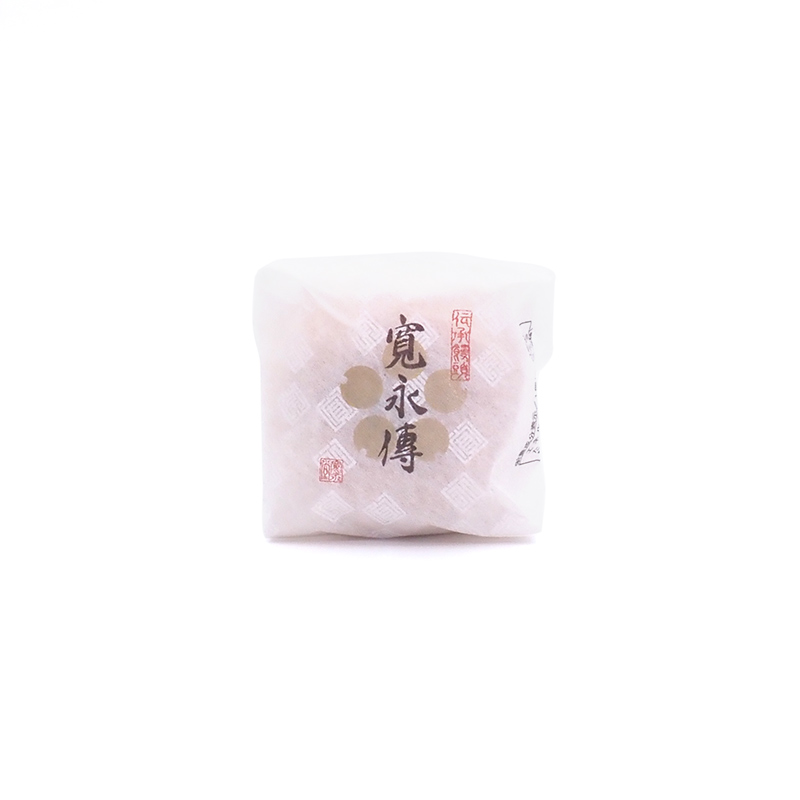
High-quality Kyoto manju with a sense of tradition
“Kan’ei-den” is made by “Kan’ei-dō” a Japanese confectionery shop in Kyoto that also operates stores nationwide. Kan’ei-dō is an extremely long-established Japanese confectionery that dates back to the Edo period (1630-1868).
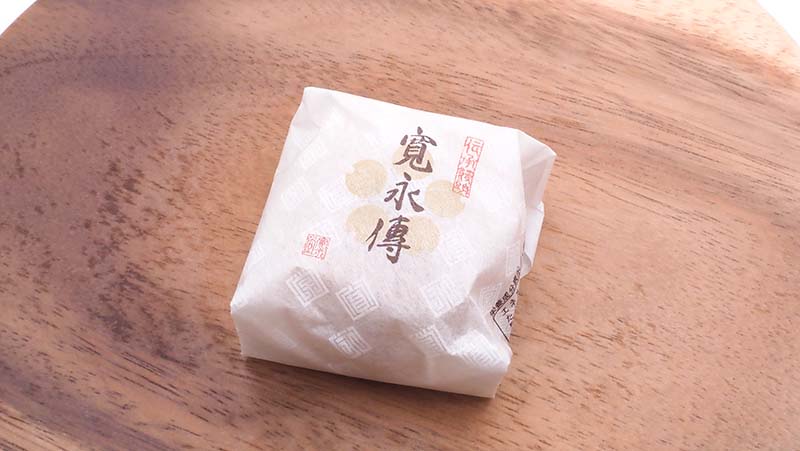
“Kan’ei” is the Japanese era name used from 1661 to 1673 during the Edo period. It is also famous as the period when the “Kan’ei-Tsuhō” coins, which were made from the Edo period to the end of the Edo period, were produced.
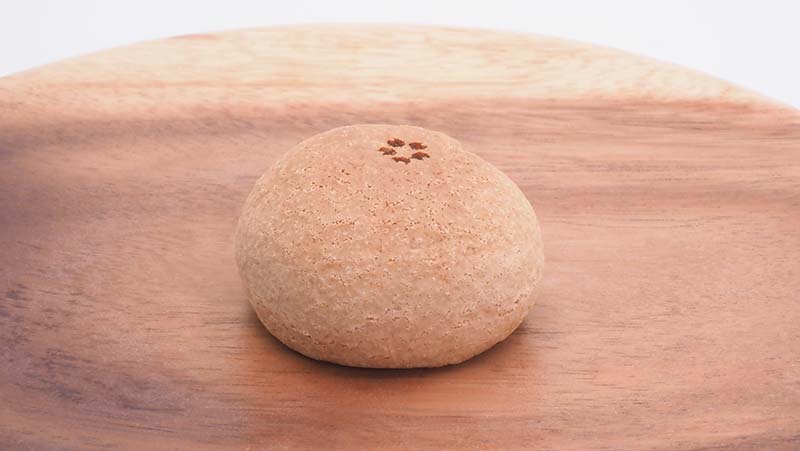
When opened, the texture of the manju skin is distinctive and dry.
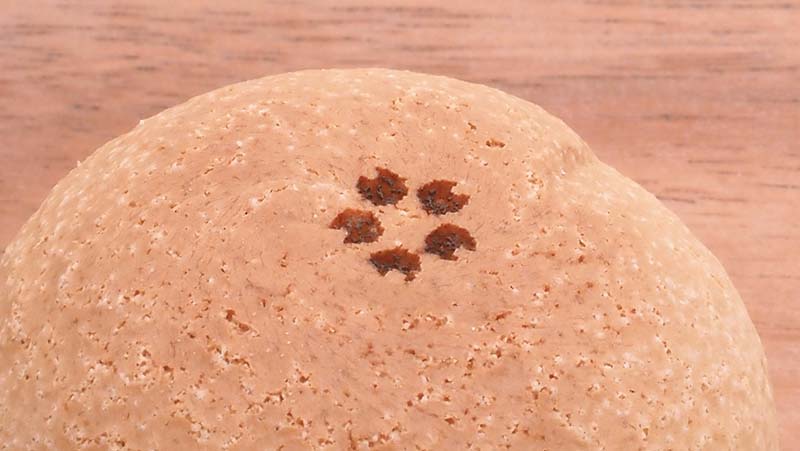
The branding on the top of the manju looks like cherry petals. This single point accentuates the elegant appearance.
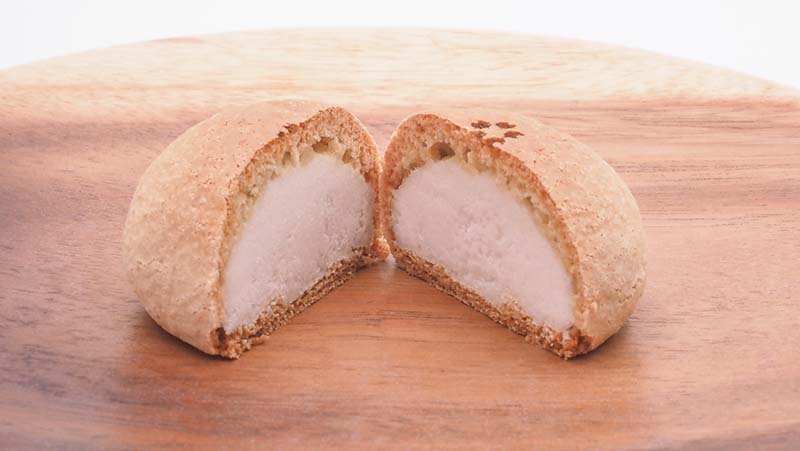
The manju skin, which has the texture of a boro, is filled with pure Navy bean paste, and while the thick manju skin is crispy, the bean paste inside is moist.
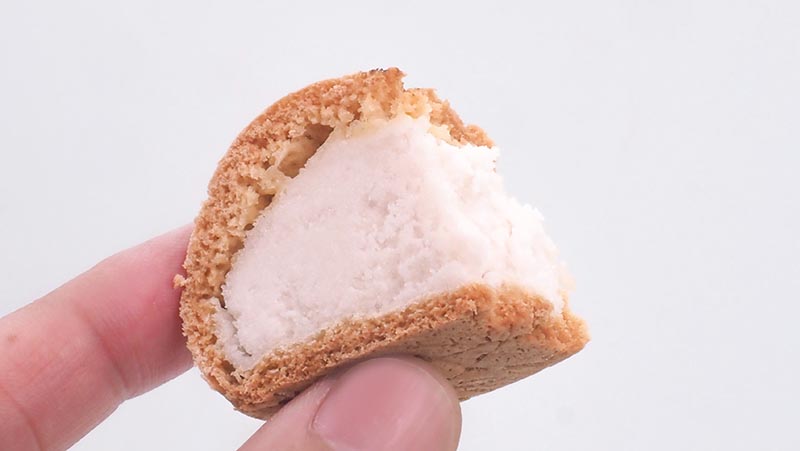
The simple sweetness of the manju skin and the light sweetness of the white bean paste are very elegant. The high quality of the manju is so refined and traditional that it is a perfect souvenir from Kyoto.
Last updated:2023-08-13
